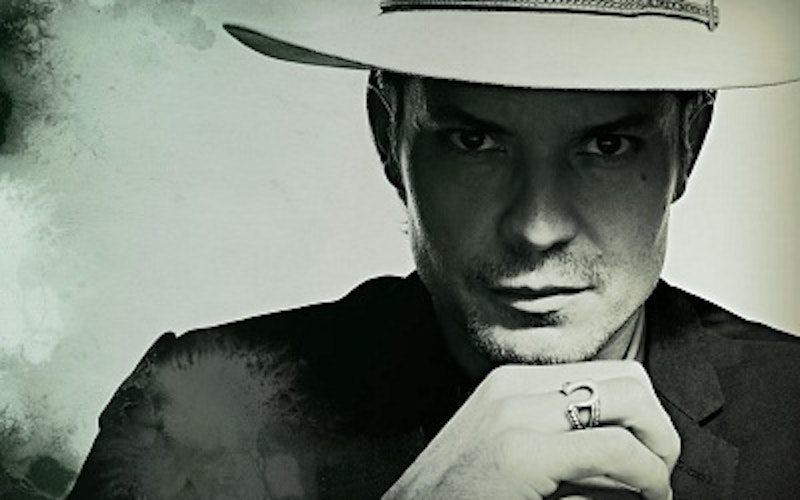
TV
Justified and the Limits of Law
“Sometimes, we have to make deals with lowlifes because we have our sights set on life forms even somehow lower on the ladder of lowlife than they.”
The above quote loses some of its charm in print, but when said by laconic Deputy U.S. Marshal Raylan Givens (Timothy Olyphant), embodying a modern reincarnation of the Old West cowboy on FX’s Justified, it sounds like poetry. Raylan is the kind of man who ends sentences with a pronoun simply because it sounds better that way.
Based on the characters of novelist Leonard Elmore and reflecting his distinct ear for localized dialogue, Justified is one of the few shows as interested in the journey of the plot as its destination. Just because it’s exploring the sins of fathers, the never-ending war on drugs or the poverty of coal-mining counties doesn’t mean the characters don’t have time for a good quip (or five).
Much like a Quentin Tarantino movie, the darkness of the subject matter is thrown up against crackling dialogue I could listen to for hours. Each episode is a mix of classic Western machismo and a postmodern sense of irony. And it’s fantastic.
But this detached irony is also one of the shows emotional themes. During this season specifically, which wraps up April 2, Justified looks behind its characters’ clever posturing and asks, “What makes someone good?”
Justified looks behind its characters’ clever posturing and asks, “What makes someone good?”
Raylan, who represents the incorruptible law, is committed to justice, but not necessarily for noble reasons. In a recent episode Raylan is told he would be better off as a criminal as he could still shoot people and be a jerk, which are his two favorite hobbies. In the show’s pilot episode Raylan’s estranged wife tells him, “You hide it well, but you’re just about the angriest man I’ve ever known.”
Most of this anger - and one of Justified’s major themes - is connected to Raylan’s relationship with his father (Raymond J. Barry). It’s implied Raylan became a marshal to prove he is a better man than his abusive dad. His contempt for his father is directed at the criminals he pursues. In Raylan’s world, rehabilitation isn’t an option. Much like Javert in Les Miserables, there’s the law and only the law, and if someone can’t live by the code they don’t simply deserve punishment - they’re something less than a human being.
It’s interesting, then, that in the world of Justified, a prostitute named Ellen May (Abby Miller) might be the closest to redemption. Lonely, broken and hurting, Ellen May found a glimpse of salvation this season at a local tent revival, and ever since has been searching for a God who might accept her, right where she’s at. While the other characters - heroes and villains - hide their insecurity and pride behind cleverness, Ellen May is transparent and humble.
In Justified’s world, Raylan’s detached irony is an emotional crutch that keeps him from admitting to the chaotic state of his soul. And it’s the poor in spirit who might find the kingdom of Heaven, not the pharisaical protectors of the law.
Topics: TV, Culture At Large, Arts & Leisure